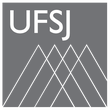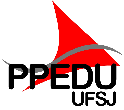PPEDU
PROGRAMA DE PÓS-GRADUAÇÃO EM PROCESSOS SOCIOEDUCATIVOS E PRÁTICAS ESCOLARES
PRÓ-REITORIA DE PESQUISA E PÓS-GRADUAÇÃO
Phone: Not available
E-mail:
mavilatodaro@ufsj.edu.br
http://www.ufsj.edu.br//mestradoeducaca
Banca de QUALIFICAÇÃO: DAIANA BRAGA SANTOS
Uma banca de QUALIFICAÇÃO de MESTRADO foi cadastrada pelo programa.STUDENT : DAIANA BRAGA SANTOS
DATE: 01/04/2022
TIME: 15:00
LOCAL: Google meet
TITLE:
EDUCATIONAL PRACTICES IN THE WORK OF THE COMMUNITY AGENT OF HEALTH MEDIATED BY THE USE OF DIGITAL TECHNOLOGIES OF INFORMATION AND COMMUNICATIONKEY WORDS:
Autoethnography. Health education. Educational practices in everyday life. Digital Information and Communication Technologies. Community Agent Work of health.PAGES: 68
BIG AREA: Ciências Humanas
AREA: Educação
SUMMARY:
The COVID-19 pandemic has changed the work of many healthcare professionals, among them, that of the Community Health Agent (ACS), since their work consisted of carrying out home visits, which had to be rethought due to the current situation, requiring the ACS to reinvent their work routine and their way of work, redefining the use of technology in your favor. In addition, the territory of such worker who was previously represented by the street and the households of families, now has presented itself through the virtual, mediated by the Digital Technologies of Information and Communication (TDIC). Health understood by many as an absence disease, cannot and should not be restricted to this conception, because “the living body is the person, who carries a story, dilemmas, sufferings, joys, tastes, needs, understandings and cultures.” (CARVALHO & CECCIM, 2006 p.23), in fact, questions social aspects - such as access to education, work, basic sanitation, food, among others. others- directly impact health promotion. Services that were once offered in person, with the pandemic, they became available online, excluding part of the population. Issues that can only be resolved through technology: people who need to download the “MEU INSS” app to book an appointment expertise or get paid, a patient who needs to email his PDF documentation to get a job on the assignment, patients who need a bill that the post office did not send, are some routine examples in the daily life of a Family Health Strategy (ESF) and that transform the work of ACS in educational practices. In this way, Health Education takes place in the everyday work of workers and in the interaction with people's needs, in a teaching-learning process, in which popular knowledge is shared and scientific ones (BRASIL & SANTOS, 2018), increasing individual autonomy and collective of people (BESSA et al, 2020). In this context, TDICs arise, mediating the Health Education, in addition to enabling learning and communication between health professionals and patients (CHAVES et al, 2018). For this, it was necessary to use the autoethnography that was the guiding thread of this research, because the researcher act as ACS and their feelings and experiences are vital data “for understanding the social world being observed.” (SANTOS, 2017, p. 223)BANKING MEMBERS:
Externo à Instituição - MARIA LUCIANA BOTTI - UNICENTRO
Presidente - 2117285 - CASSIA BEATRIZ BATISTA E SILVA
Interno - 1568423 - DIEGO DE SOUSA MENDES
Notícia cadastrada em: 17/03/2022 16:02
SIGAA | NTInf - Núcleo de Tecnologia da Informação - | Copyright © 2006-2024 - UFSJ - sigaa05.ufsj.edu.br.sigaa05




